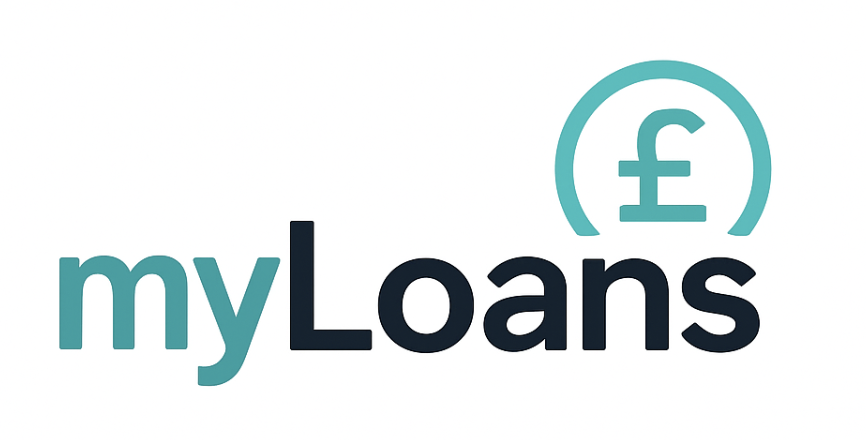Table of Contents
-
Introduction
-
What Does “Bad Credit” Mean in the UK?
-
Credit reference agencies
-
Score ranges and thresholds
-
Common causes of bad credit
-
-
Can You Get a Personal Loan with Bad Credit?
-
Which Lenders Offer Bad Credit Loans?
-
High street banks
-
Specialist online lenders
-
Credit unions
-
Guarantor loan providers
-
-
Interest Rates and APR Ranges You Can Expect
-
How Lenders Assess Risk
-
Alternatives to Bad Credit Personal Loans
-
Secured loans
-
Credit builder credit cards
-
Debt consolidation loans
-
Debt advice and management plans
-
-
Pros and Cons of Bad Credit Personal Loans
-
Steps to Improve Your Credit Before Applying
-
Frequently Asked Questions
-
Conclusion
Introduction
Struggling with a poor credit score can feel like hitting a financial brick wall, but it doesn’t mean you’re locked out of borrowing forever. In the UK, thousands of people each year take out personal loans despite having defaults, County Court Judgments (CCJs), or a history of missed payments.
While these situations do limit your choices and increase the cost of credit, options still exist — from community-based credit unions to guarantor loans and specialist online lenders.
This guide explains everything you need to know about bad credit personal loans in the UK in 2025. You’ll learn how they work, what interest rates you can expect, who the typical lenders are, and what steps you can take to improve your chances of approval.
Along the way, we’ll highlight safer alternatives and give you practical tips to avoid debt traps while using borrowing as a stepping stone to rebuilding your credit profile.
What Does “Bad Credit” Mean in the UK?
In the UK, your financial history is tracked by three main credit reference agencies: Experian, Equifax, and TransUnion. Each assigns you a score based on how you’ve managed credit in the past. The ranges differ, but generally:
-
Experian: 0–999 (bad is usually below 560)
-
Equifax: 0–1000 (bad is usually below 420)
-
TransUnion: 0–710 (bad is usually below 566)
A “bad” credit score indicates that you’ve had problems such as:
-
Late or missed repayments
-
Defaults registered on loans or credit cards
-
County Court Judgments (CCJs)
-
Very high credit card utilisation (close to your limits)
-
Frequent applications for credit in a short time
-
A thin credit file (not much history to assess)
Although a low score reduces your options, it doesn’t automatically disqualify you from getting a loan. Each lender has its own criteria, and some specialise in helping borrowers with weaker profiles.
For context, if you want to see how mainstream lending works, you might find our guide to unsecured personal loans in the UK useful as a comparison.
Can You Get a Personal Loan with Bad Credit?
Yes, it is possible. The reality is that your choice of lenders will be narrower and the rates will be higher, but bad credit does not mean no credit.
Lenders will look at a wider picture of your finances, including:
-
Whether your income is stable and sufficient to cover repayments
-
How much other debt you already carry
-
How consistent you are with housing and employment history
-
Whether you can demonstrate affordability through bank statements
Some lenders may automatically decline people with recent defaults or CCJs, but others will consider applications on a case-by-case basis.
A growing number of providers now offer soft search eligibility checks, allowing you to see if you’re likely to be approved before you formally apply. These checks don’t harm your credit file, so they’re a safe way to test your chances.
Which Lenders Offer Bad Credit Loans in the UK?
There are four main categories of lenders who may provide personal loans to people with bad credit:
High street banks
Mainstream banks like Lloyds, Barclays, and HSBC rarely lend to people with recent serious issues such as defaults or CCJs. However, if your problems are minor and you’ve maintained a long-standing current account relationship, you may still be considered.
Specialist online lenders
This sector has grown rapidly in recent years. Companies such as Likely Loans, Everyday Loans, and Lendable focus on borrowers with weaker credit profiles. They tend to offer smaller sums (from £500 upwards) with higher interest rates, but they often provide quick approvals and same-day funding.
Credit unions
Community-based and not-for-profit, credit unions are one of the most affordable routes for bad credit borrowers. Their rates are capped at 42.6% APR, with many charging far less, typically around 12%–20%. They’re particularly useful for smaller loans under £5,000. You can find your nearest one through the Association of British Credit Unions (ABCUL).
Guarantor loan providers
With guarantor loans, a trusted friend or family member co-signs your application and agrees to make repayments if you fail to. This dramatically increases your chance of being approved, but the risk is high for your guarantor. APRs are usually between 30% and 50%.
Interest Rates and APR Ranges You Can Expect
Bad credit loans cost more because lenders are taking on additional risk. Here’s what you might typically see in 2025:
| Loan Type | Representative APR | Loan Range | Term |
|---|---|---|---|
| High street personal loan (good credit) | 6%–12% | £1,000–£35,000 | 1–7 years |
| Specialist bad credit loan | 20%–49% | £500–£10,000 | 1–5 years |
| Guarantor loan | 30%–50% | £1,000–£10,000 | 1–5 years |
| Credit union loan | ~12% typical | £100–£15,000 | Flexible |
For example, if you borrowed £3,000 over three years at 39.9% APR, your monthly repayment would be around £142. That means paying back £5,112 in total — £2,112 more than you originally borrowed.
How Lenders Assess Risk
Credit score is only part of the picture. When you apply for a loan, lenders also consider:
-
Income and expenditure: They want to see that you have disposable income each month after essential bills.
-
Employment status: Being in stable employment increases your chances, although some lenders accept applicants on benefits or self-employed.
-
Housing situation: Homeowners may be viewed as more stable, but tenants can still apply.
-
Banking behaviour: Regular salary deposits and sensible account management count in your favour.
This is why improving affordability by reducing other debts before applying can make a big difference.
Alternatives to Bad Credit Personal Loans
Sometimes, borrowing isn’t the best option. Before applying, consider alternatives such as:
-
Secured loans: Larger sums and lower interest, but your home or car is at risk if you default.
-
Credit builder credit cards: Designed for poor credit, with higher APRs. If you pay off the balance in full each month, you avoid interest and rebuild your score.
-
Debt consolidation loans: Roll multiple debts into one. For details, see our guide to personal loan debt consolidation in the UK.
-
Debt advice and management plans: Free support is available from StepChange, National Debtline, and Citizens Advice.
Pros and Cons of Bad Credit Personal Loans
Like any financial product, bad credit loans come with trade-offs.
Pros
-
Provides access to funds when other routes are closed
-
Can be used to consolidate expensive credit card debt
-
Helps rebuild your credit record if repayments are made on time
Cons
-
Interest rates are significantly higher
-
Missed payments make your situation worse
-
Guarantor loans risk damaging personal relationships
-
Limited choice compared to mainstream borrowing
Steps to Improve Your Credit Before Applying
Improving your score even slightly can unlock lower rates or make approval more likely.
-
Check your credit file with Experian, Equifax, and TransUnion
-
Correct errors such as outdated defaults or incorrect addresses
-
Register to vote at your current address
-
Reduce existing balances to lower your credit utilisation
-
Avoid making multiple applications in a short time
-
Consider a credit builder card and clear it in full each month
-
Maintain stability in employment and address
You can also learn more from our advice on how to compare unsecured personal loans effectively.
Frequently Asked Questions
Can I get approved the same day?
Yes. Some online lenders offer near-instant decisions and same-day funding, though the APRs are high.
Will applying harm my credit?
Only if the lender performs a hard search. Using soft-search tools first avoids damage.
Do I need a guarantor?
Not always. But if your credit is very poor, having a guarantor can increase approval chances.
What’s the maximum I can borrow with bad credit?
Most bad credit personal loans range between £500 and £10,000. Secured loans can be larger but carry more risk.
Conclusion
A poor credit history doesn’t have to mean financial exclusion. In 2025, UK borrowers with defaults, CCJs, or limited history still have access to loans through specialist lenders, guarantor products, and credit unions.
The important thing is to borrow wisely. Compare lenders carefully, use soft search eligibility tools, and never borrow more than you can comfortably afford. Treat a bad credit loan not just as a source of funds but as part of a long-term plan to rebuild your credit. With responsible repayment and a strategic approach, you can move back towards mainstream finance and lower-cost borrowing in the future.
Personal Loan Debt Consolidation UK – Is It Right for You?
Juggling multiple credit cards, overdrafts, or loans can be stressful and expensive. A debt consolidation loan allows you to combine everything into a single monthly repayment, often at a lower interest rate. In 2025, UK lenders from high street banks to online...
Emergency Loans UK – How to Borrow Fast in 2025
When an urgent expense hits — like car repairs, medical bills, or a broken boiler — quick access to funds can be essential. In 2025, emergency loans in the UK provide a way to borrow fast, with some lenders offering same-day decisions and payouts. This guide explains...
Top 10 Personal Loan Providers UK 2025 – Rates, Features & Eligibility
The UK personal loan market in 2025 offers more choice than ever, with banks, supermarkets, online lenders, and credit unions all competing for borrowers. The best deal for you depends on your credit score, loan size, and repayment term — but comparing providers side...
Best Debt Consolidation Loans UK 2025 | Top Options
Managing multiple debts can feel overwhelming, especially with credit cards, overdrafts, and personal loans all charging different interest rates. A debt consolidation loan can simplify your finances by rolling everything into one fixed monthly repayment — often at a...
Best Bad Credit Loans UK 2025 – Top Lenders Compared
Having a poor credit score, CCJs, or past defaults doesn’t mean borrowing is out of reach. In 2025, several UK lenders specialise in products designed for people with bad credit — offering smaller loans, flexible repayment terms, and eligibility checks that won’t harm...
Home Repair Loans UK – How to Cover Unexpected Costs in 2025
A leaking roof, broken boiler, or urgent plumbing issue can quickly turn into an expensive problem — often when savings aren’t available. In 2025, home repair loans in the UK provide a way to spread the cost of essential fixes into manageable monthly repayments. This...
Green Energy Loans UK – How to Finance Eco-Friendly Home Improvements in 2025
Eco-friendly upgrades such as solar panels, insulation, heat pumps, and EV chargers can cut energy bills and boost property value — but they require a significant upfront investment. In 2025, green energy loans in the UK provide a way to spread the cost of sustainable...
Moving House Loans UK – How to Cover Relocation Costs in 2025
From deposits and removal vans to solicitor fees and new furniture, moving house in the UK can quickly add up to thousands of pounds. Not everyone has savings set aside to cover these costs upfront. In 2025, moving house loans in the UK provide a way to spread...
Education Loans UK – How to Fund Studies and Professional Courses in 2025
Not all education in the UK is covered by government student finance. Postgraduate degrees, professional qualifications, and private training often require self-funding — with tuition fees and course costs running into thousands of pounds. In 2025, education loans in...
Holiday Loans UK – How to Spread the Cost of Travel in 2025
Holidays can be some of the most rewarding experiences of the year, but they often come with a price tag that’s hard to cover upfront. From flights and hotels to all-inclusive packages and once-in-a-lifetime trips, the costs can add up quickly. In 2025, holiday loans...
Best Personal Loans UK 2025 – Top Lenders Compared
The UK personal loan market in 2025 is more competitive than ever, with high street banks, supermarkets, online lenders, and credit unions all offering products to suit different needs. Choosing the right provider can save you hundreds in interest and ensure...
Medical Loans UK – How to Finance Healthcare Costs in 2025
While the NHS covers most essential treatment, waiting lists, private care, and specialist procedures mean many people face out-of-pocket medical expenses. From dental work and fertility treatment to cosmetic surgery and urgent private healthcare, costs can run into...
Car Loans UK – Personal Loan vs Hire Purchase vs PCP in 2025
Buying a car in 2025 usually means more than just choosing the right vehicle — it also means deciding how to pay for it. In the UK, the three main options are a personal loan, hire purchase (HP), or personal contract purchase (PCP). Each has its own advantages,...
Home Improvement Loans UK – How to Finance Renovations in 2025
Planning a new kitchen, loft conversion, or energy-efficient upgrade can transform your home’s value and comfort — but the upfront costs are often daunting. In 2025, home improvement loans in the UK provide a way to spread renovation expenses into affordable monthly...
How to Use a Personal Loan Calculator to Plan Your Borrowing
A personal loan calculator is one of the easiest ways to understand what a loan will really cost you. By entering the amount you want to borrow, the interest rate, and the repayment term, you can see your monthly repayments and the total cost over time. This simple...

















